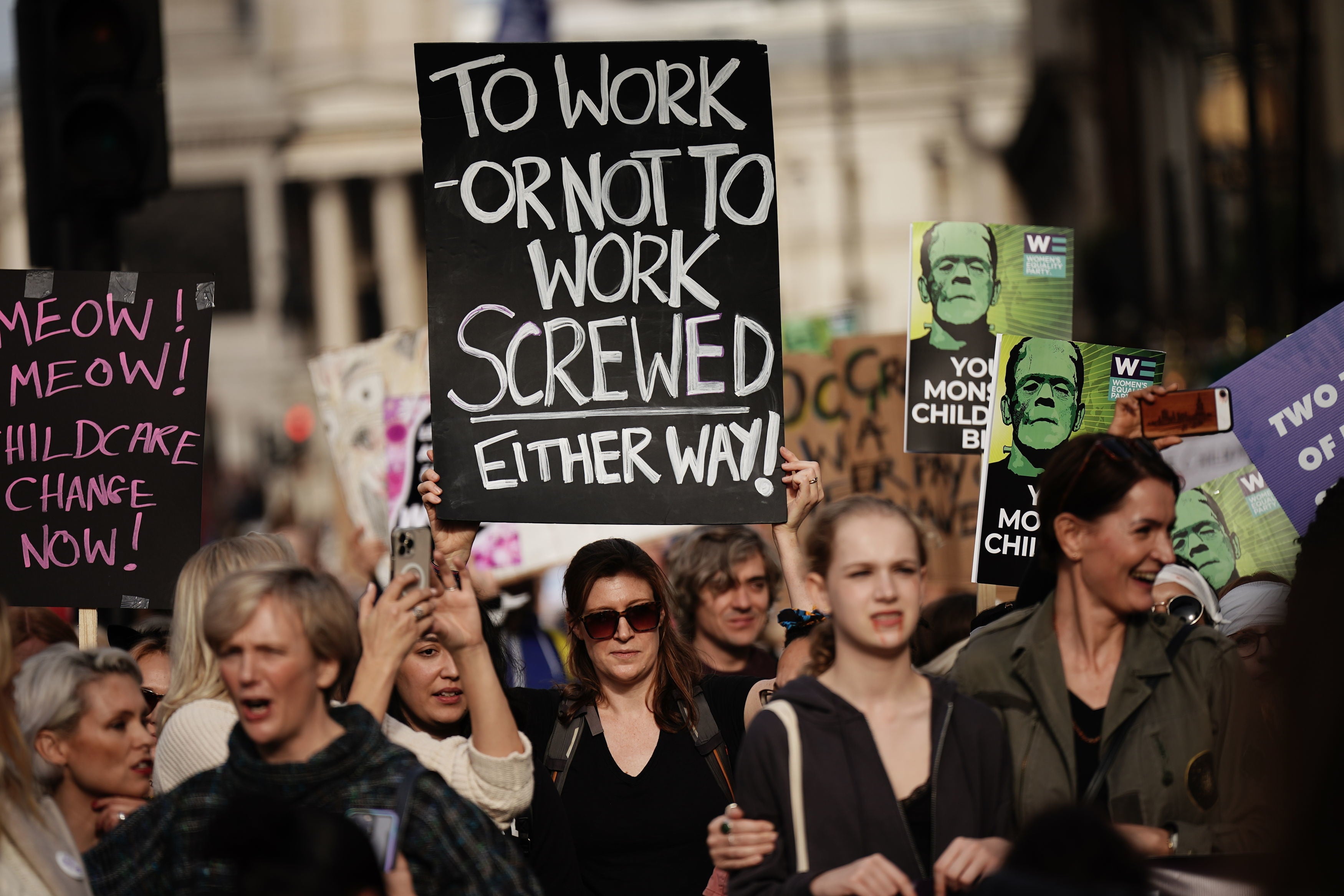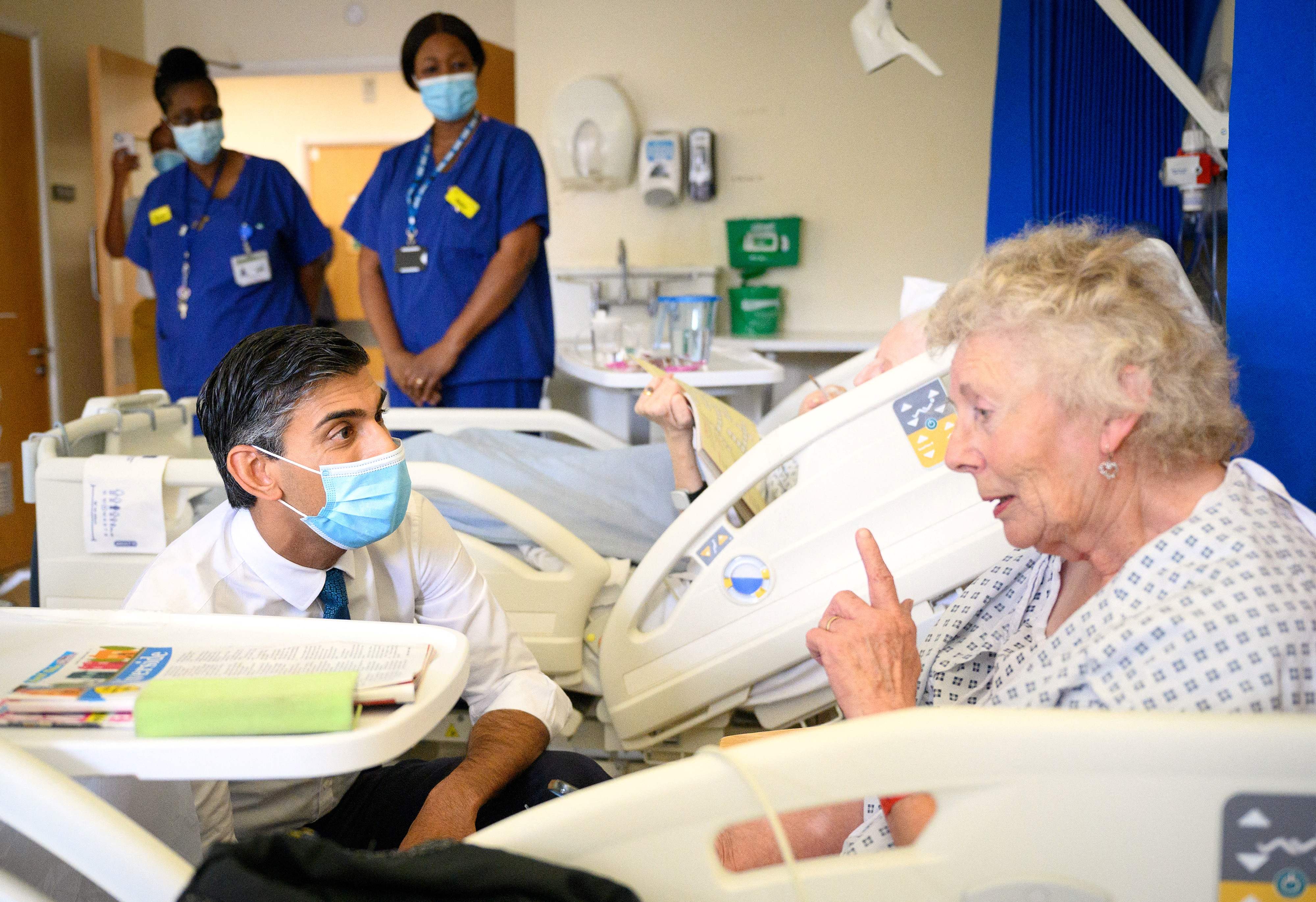NHS staff ‘forced to choose between rent and childcare’ as pay fails to meet soaring cost of living
Exclusive: ‘It’s an absolute vicious cycle’ warns senior nurse Charlotte Collings, who says international recruits are affected most by childcare costs
NHS staff face choosing between rent and childcare as their pay fails to meet the rising cost of living along with huge nursery fees, The Independent has been told.
Hospitals are attempting to provide support for struggling parents, including offering more flexible hours and “any-hours” schemes, in a bid to retain staff who would otherwise be forced to quit or reduce their shifts.
Charlotte Collings, a member of the Royal College of Nursing’s Eastern regional board, warned that international workers – who make up almost 50 per cent of the NHS nursing workforce – are being hit even harder as they do not qualify for the 30 hours of free childcare currently offered by the government.
She told The Independent her trust has lost staff who have moved to areas with cheaper accommodation so that they can afford childcare costs.
Have you been affected by this story? If so email rebecca.thomas@independent.co.uk
Saffron Cordery, chief executive of NHS Providers, said: “One trust leader said to us – and I think this is really compelling – that the pay awards did not reflect the reality of their staff’s lives. That’s a really important thing to remember.”
She said NHS trusts are looking at ways to help staff, such as “thinking differently about working patterns so that people can access cheaper childcare”.
The news comes as the charity Pregnant Then Screwed organised a series of marches – reported to have been attended by more than 15,000 people – to protest about childcare costs in the UK.

The Royal College of Nursing (RCN) is set to close a ballot this week on strike action over the government’s decision to make a below-inflation pay offer, as the most recent data showed that 40,000 nurses had left the NHS within the last year.
And analysis published last week by the London School of Economics, commissioned by the RCN, warned that nurses had seen a 20 per cent pay cut in the last decade. The government is also facing industrial action by thousands of ambulance staff, while junior doctors have threatened to strike over pay.
The UK has the second most expensive childcare in the world, with fees costing almost two-thirds of a family’s mortgage or rent, according to the Organisation for Economic Cooperation and Development.
Earlier this year, the Royal College of Midwives backed a petition to urge the government to allow those studying to become midwives, paramedics and nurses to qualify for the 30 hours of free childcare available to working parents.
The most recent data from the Nursing and Midwifery Council shows that around 48 per cent of nurses and midwives on the register were trained outside the UK, while the government has repeatedly said that international recruitment forms a core part of its plans to expand the number of nurses in the NHS.

Speaking to The Independent, Ms Collings, who is also a senior nurse in the South East, said that international nurses who are brought to the UK on skilled overseas workers’ permits are not entitled to the 20 per cent reduction in fees or 30 hours of free childcare offered by government schemes.
She said: “I’m losing nurses to Coventry because they can rent a house for half the price. With the money they paid for rentals, they can afford to have adequate childcare provision – it’s an absolute vicious cycle.”
Ms Collings, who has a daughter and is pregnant, said she had to cut her hours until her daughter turned three as she was not able to work compressed hours over shorter days, and also had to leave her specialist role as an intensive care nurse because it was not possible to organise suitable shifts.
She added: “If it wasn’t for the goodwill of family picking up 50 per cent of my childcare, I don’t know how we’d manage, and that’s from somebody who is a band 5 nurse and [lives in] a two-income household.”

Kate Jarman, director of corporate affairs at Milton Keynes Hospital, told The Independent: “We are piloting an ‘any hours’ scheme, where staff can opt to work for parts of shifts – essentially the hours they can work, perhaps to fit around other commitments, including childcare, which we know is a significant cost. Staff can do this on a substantive contract, or can opt to do this via our temporary staffing bank.
“We want to make it as easy as possible for people to work – we need to retain skilled and experienced staff, and we know that flexibility and helping people juggle their home and working lives can make the difference between them staying or leaving the NHS.”
Ms Cordery added: “What we do know is that trusts are also doing everything they can to carry their staff through this, to make sure that they create as productive and positive a working environment as they can. But with severe staff shortages and more than 132,000 vacancies across trusts, it’s harder than ever for overstretched services to do.
“The government gave all NHS staff below-inflation pay awards this year, leaving them worse off in real terms. Many have reached a tipping point. Just this week another trust opened food banks in its hospitals to help employees make ends meet.
“At the end of the day, what the NHS needs [in order] to prevent staff we can ill afford to lose from leaving the NHS – with a knock-on effect on the quality of patient care – is a long-term, fully costed and funded national workforce plan from the government.”
Ahead of the nurses’ strike ballot next week, Rishi Sunak was confronted by a patient about nurses’ pay during a visit to a hospital in Croydon. Catherine Poole, a 77-year-old patient who was recovering from surgery, admonished the prime minister when he toured her ward.

Mr Sunak dodged a question about nurses’ pay when pushed by broadcasters following the exchange. When asked if he was happy that nurses are not getting a real-terms increase in pay, he did not address the question.
He instead said: “We face lots of challenges as a country, but I am confident that we can fix the economy and deliver on the promise of the 2019 manifesto, including having a stronger NHS.”
A government spokesperson said: “We hugely value the contribution of NHS staff, which is why we are giving over one million NHS workers a pay rise of at least £1,400 this year. NHS staff also received a 3 per cent pay rise last year, increasing nurses’ pay by £1,000 on average, despite a public sector pay freeze.
“We have also provided at least an extra £1,200 in cost-of-living support to 8 million of the most vulnerable households, and we’ve reversed the rise in national insurance contributions and made changes to universal credit to help working households keep more of what they earn.”
Join our commenting forum
Join thought-provoking conversations, follow other Independent readers and see their replies
Comments

Bookmark popover
Removed from bookmarks